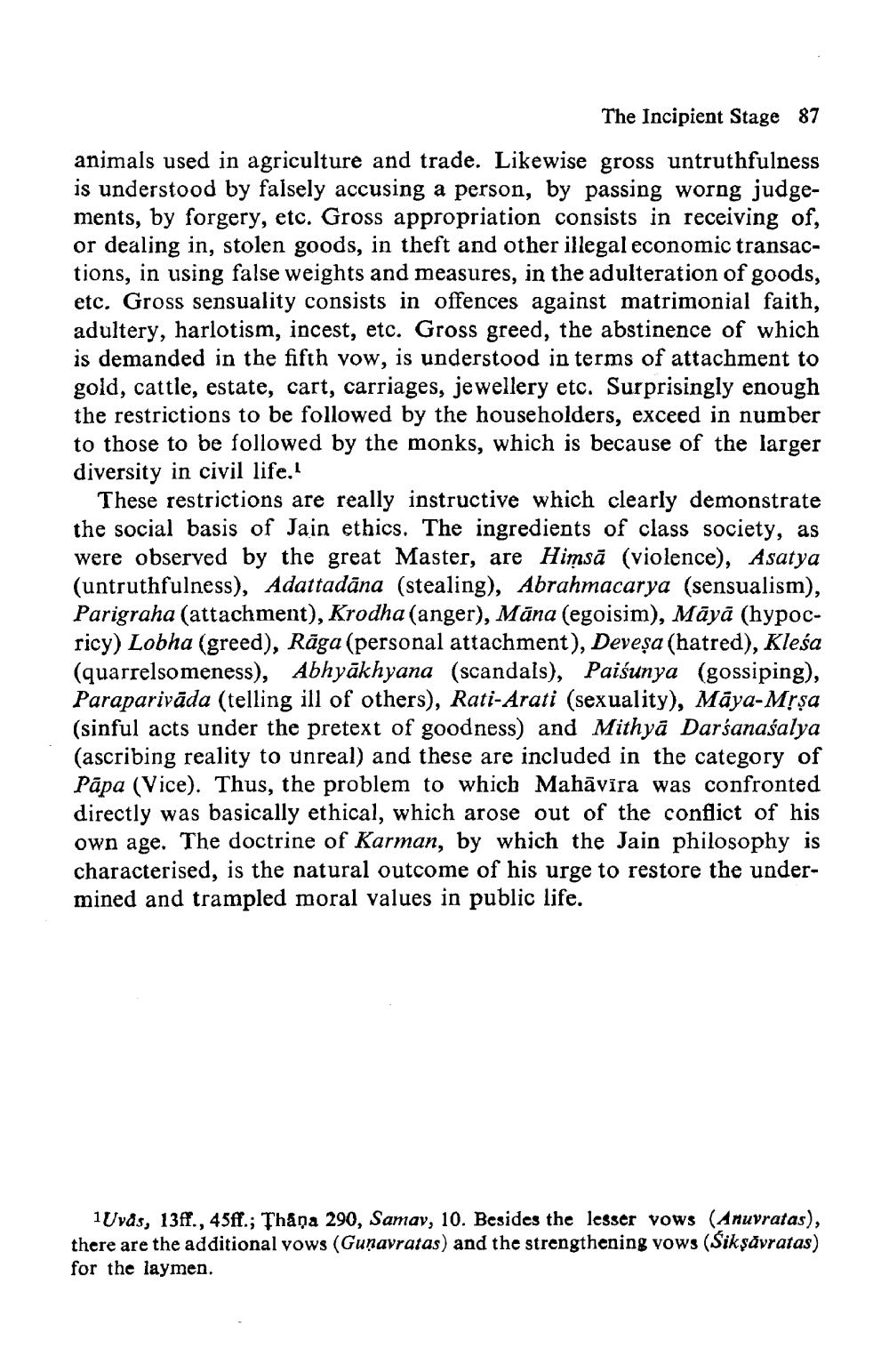________________
The Incipient Stage 87
animals used in agriculture and trade. Likewise gross untruthfulness is understood by falsely accusing a person, by passing worng judgements, by forgery, etc. Gross appropriation consists in receiving of, or dealing in, stolen goods, in theft and other illegal economic transactions, in using false weights and measures, in the adulteration of goods, etc. Gross sensuality consists in offences against matrimonial faith, adultery, harlotism, incest, etc. Gross greed, the abstinence of which is demanded in the fifth vow, is understood in terms of attachment to gold, cattle, estate, cart, carriages, jewellery etc. Surprisingly enough the restrictions to be followed by the householders, exceed in number to those to be followed by the monks, which is because of the larger diversity in civil life.
These restrictions are really instructive which clearly demonstrate the social basis of Jain ethics. The ingredients of class society, as were observed by the great Master, are Himsā (violence), Asatya (untruthfulness), Adattadāna (stealing), Abrahmacarya (sensualism), Parigraha (attachment), Krodha (anger), Māna (egoisim), Māyā (hypocricy) Lobha (greed), Rāga (personal attachment), Devesa (hatred), Kleša (quarrelsomeness), Abhyākhyana (scandals), Paisunya (gossiping), Paraparivāda (telling ill of others), Rati-Arati (sexuality), Maya-Mrşa (sinful acts under the pretext of goodness) and Mithya Darśanaśalya (ascribing reality to unreal) and these are included in the category of Pāpa (Vice). Thus, the problem to which Mahāvīra was confronted directly was basically ethical, which arose out of the conflict of his own age. The doctrine of Karman, by which the Jain philosophy is characterised, is the natural outcome of his urge to restore the undermined and trampled moral values in public life.
1 Uvås, 13ff., 45ff.; Thaņa 290, Samav, 10. Besides the lesser vows (Anuvratas), there are the additional vows (Gunavratas) and the strengthening vows (Sikşāvratas) for the laymen.




